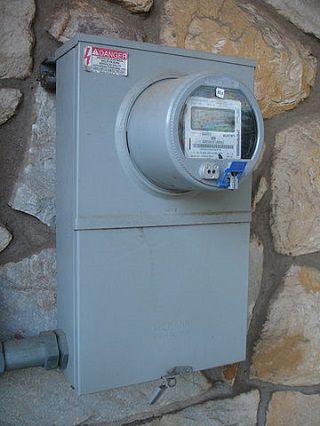From Guest Blogger Mary Ann Keel: Transforming Your Home To Be More Energy Efficient

Turn off appliances when they aren’t in use, or take advantage of stand-by mode. If you have a heater or an air conditioner, don’t leave it on full-blast all the time. Sometimes, just a simple fan (or a blanket) is more than enough to properly regulate your body temperature without needing to use massive amounts of energy to temporarily change the temperature of your entire house. Many appliances will have some type of stand-by or power-saver mode.
Don’t run half empty loads of laundry or the dishwasher. It can be tempting to run the washer and dryer for a couple outfits, but wait until you have enough to fill it. The same goes for the dishwasher. Give your plates and cutlery a quick rinse before putting into the dishwasher and you’ll be able to leave them sitting in there for longer without it getting gross. Some people run their dishwasher every couple of days when it’s only half full because they don’t want dirty dishing sitting in a small contained space for too long, which is a valid enough reason but that problem is easily avoidable with a quick rinse.
Windows are one of the biggest energy-wasters. In the colder months, much of your heat will escape through the windows so consider covering them with a simple plastic window treatment. It’s just a matter of taping what is essentially a thick garbage bag over your windows and this will prevent a LOT of wasted energy. There are kits available in stores, or you can always improvise. Also, during the warmer months instead of blasting the air conditioner on max all day, simply opening up the windows at night time can make a huge impact in terms of cooling down the home for the next day. Double-glazed windows can also be a huge boost in terms of energy efficiency. As a rule of thumb, if your windows are old then chances are they are one of the biggest energy-wasters in your entire home.
If your water heater is on a very hot setting, you’re burning money and energy for no use. Basically, if you turn on the cold water AND the hot water when you’re in the shower or bath, which means your water heater is probably set way too much. Turning that down a few notches simply means you won’t need to use as much (or any) cold water at the same time, so that you aren’t using a lot of energy to turn cold water into hot water only to use even more cold water to cool it back down which is so wasteful.
Switch to fluorescent light bulbs, they use much less energy than incandescent bulbs and they also last a lot longer. Fluorescent bulbs are a little bit more expensive initially (But not much these days) however they pay for themselves many times over throughout their life. LED lights may even be a better idea, as they last even longer and use even less energy than fluorescent. LED technology is getting cheaper and cheaper all the time, and it’s finally practical to use it in our homes which is great news.
At the end of the day, any steps you take are going to have an impact but if you can only do a few things, look for the ones that will make the biggest difference. Turning off lights and major appliances when you aren’t home, having energy efficient windows, and making small changes like turning down the temperate of your water heater can have a huge impact over a period of time.


Perfect place for this comment. My bill this month showed me using 9.3kWh/day. I am bummed. I was hoping to get under 9.
Instead of plastic on the windows I have used bubble wrap. It traps air and creates a good insulator.